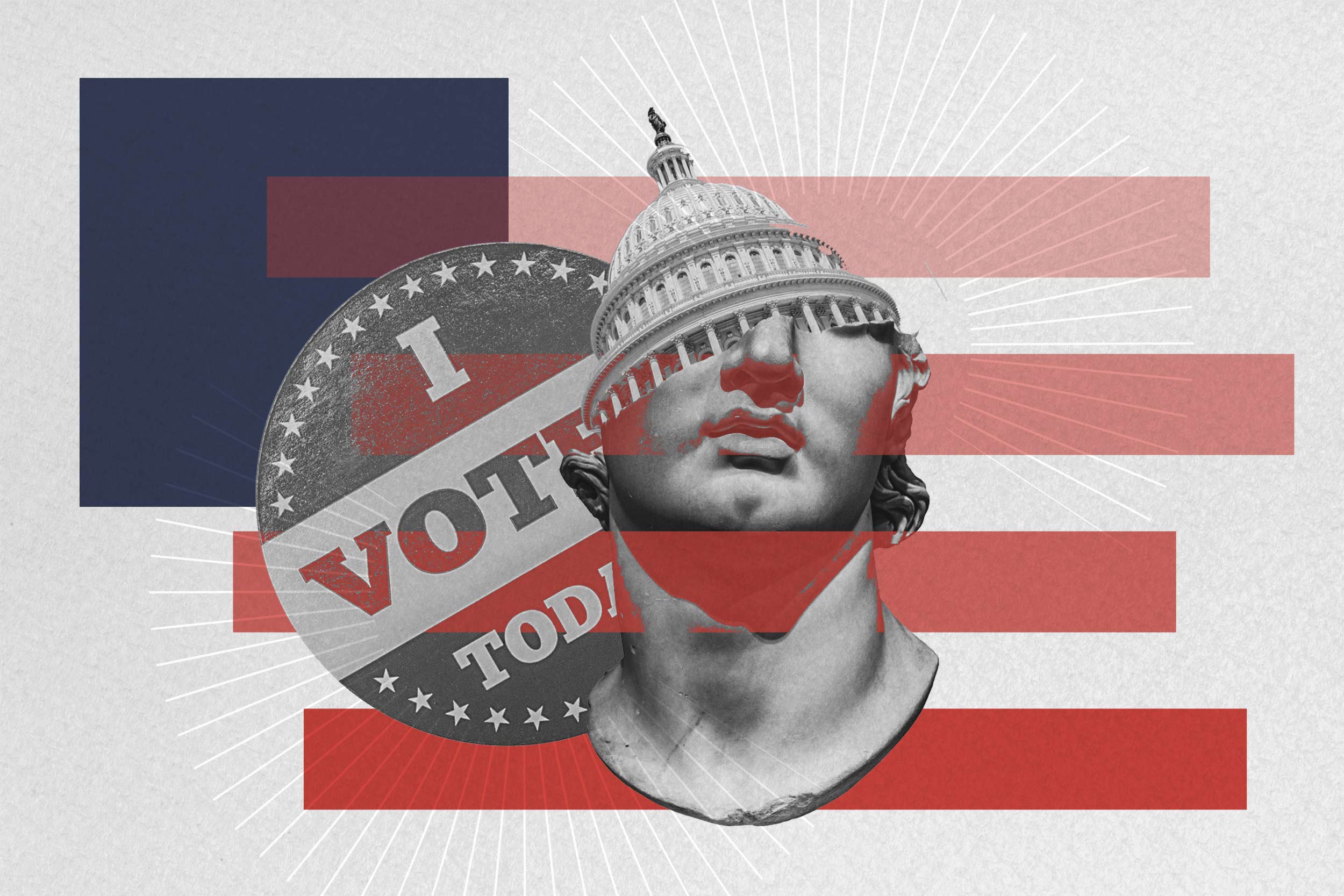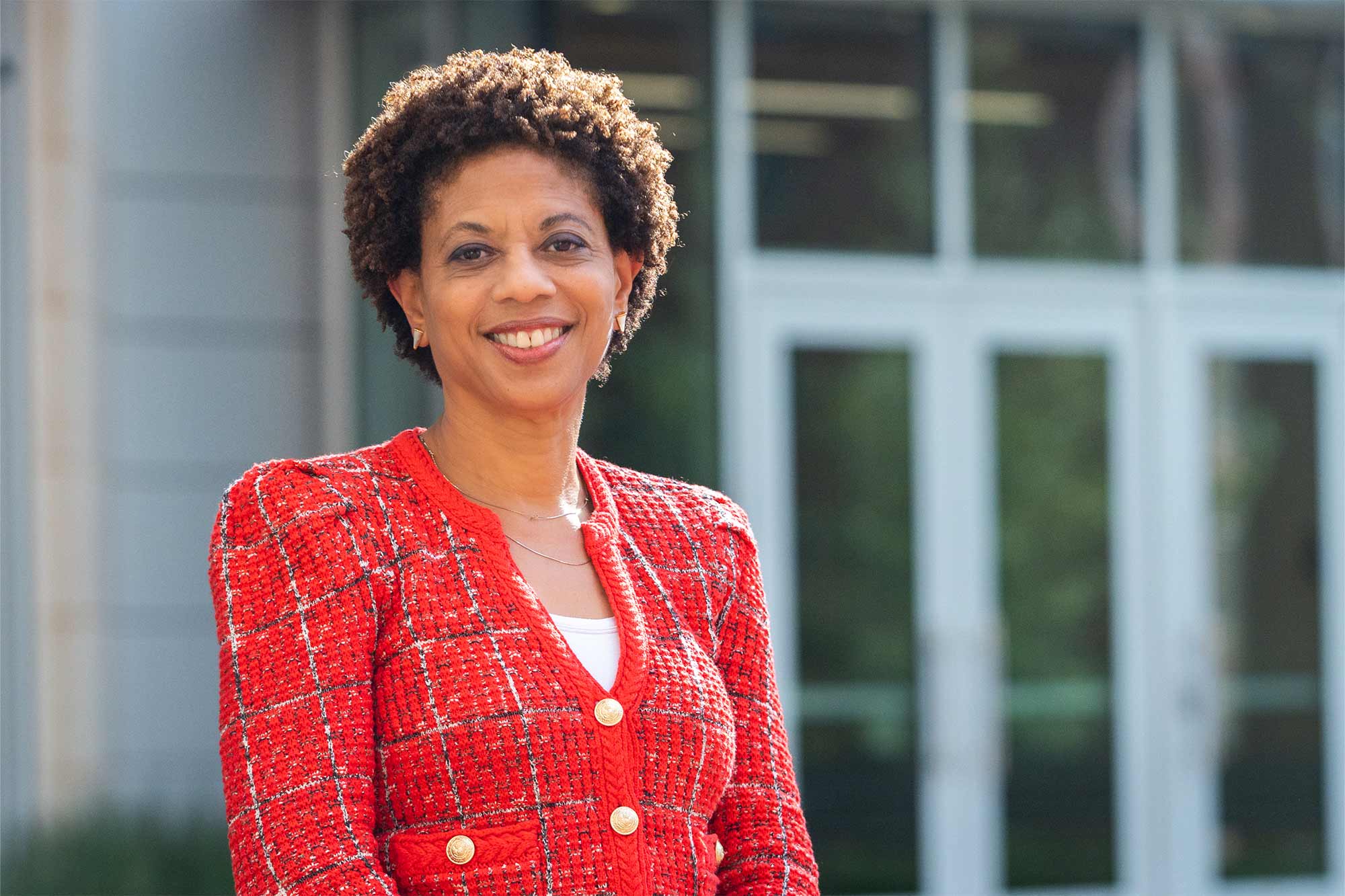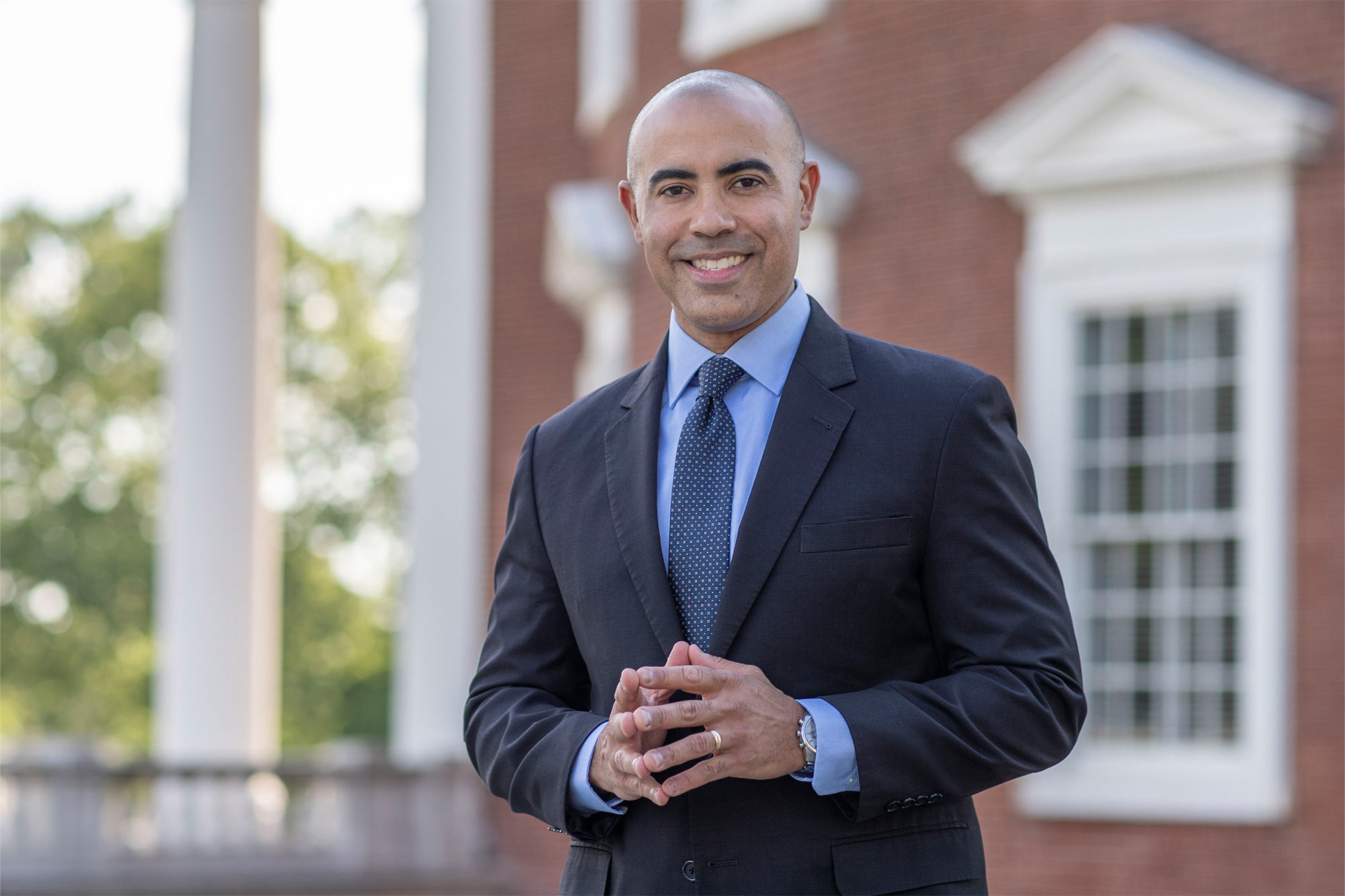“I try to find the nuance in things,” he said. “Shades of gray are usually where the truth lies.”
“I’m naturally one who tries to build consensus,” said Barnes, whose public service includes being director of the White House Domestic Policy Council in the Obama administration, executive vice president for policy at the Center for American Progress and chief counsel to the late U.S. Sen. Edward M. Kennedy on the Senate Judiciary Committee.
“In trying to move something forward, I recognize that you have to give up some things to gain some things,” she said. “I agree that being either an advocate or a negotiator is a false choice.”
Solomon and Barnes told students that whether they become attorneys, bankers, teachers or chefs, they should serve American democracy and their communities – a sentiment that is also the idea behind the Democracy and Public Service course.
The course is a core requirement for UVA’s Public Service Pathways program, founded last fall to promote an ethic of public service among students. The program reinforces such service as a personal commitment and a lifelong practice to create positive change, not only in the students’ lives, but the lives of others.
“This first semester has been an incredible adventure. We have learned so much from our students and speakers,” said Dreama Johnson, director of Public Service Pathways and one of the course’s professors. “Since this course will be offered every fall and spring semester, we are eager to learn from each cohort and refine as we continue to welcome new students into the Public Service Pathways program.”
Currently open only to first- and second-year students, the program will soon be available to every undergraduate. The course gives students a foundation to develop civic identities, understand their place in the community and a sense of civic commitment and skills to communicate with others. It also helps students explore the ideas of ethical actions and collaboration.
“We want students to grapple with what it means to responsibly contribute to a community, especially in the context of being at an institution with a deeply rooted history in the founding of the U.S. democracy,” Johnson said.
“I would say that this class has given me more questions than answers,” Andrew Chand, a second-year student, said. “We have different pathways, which is where the program gets its name. And I’m looking at the diplomacy and security pathways, and there’s also justice, so there are more questions about where I am actually going with this.”
Second-year student Virginia Warren added, “For me, this class has taken what I already knew I was passionate about, career-wise, and made me think about how I can complete public service through that passion and through that career – pursuing a career and making a difference at the same time.”
The Public Service Pathways program aims to build a culture of service, with students graduating ready to serve as citizen-leaders embracing the Jeffersonian ideal and University mission of serving the community, state, nation and globe.
Those goals permeate both the Batten School and Karsh Institute, according to Barnes and Solomon.
“I believe that work on democracy requires people from lots of different sectors with lots of different kinds of activities,” Barnes said. “The problems with democracy are going to take a long to time work our way through. Being at a place that respects and understand that is important. It’s one of the challenges of higher education.”
“Our mission at Batten is to develop leadership to bridge divides,” Solomon said. “We’re at a crossroads in American politics, and major contemporary debates are laid out here in one way or another with a strong public school ethical compass.”
Louis Nelson, associate vice provost for academic outreach and Johnson’s co-professor in the course, said both the course and the Public Service Pathways program are designed to encourage students to participate in democracy and their community. He said public service is “democracy in action.”
“Public service is not defined by sector. We’re not interested in only graduating [students] into civil service or the nonprofit world, although those are great options,” he said. “We believe that being committed to public service is part of the DNA of this university. Every student, no matter their academic discipline, should be grappling in some way with these fundamental questions.”












